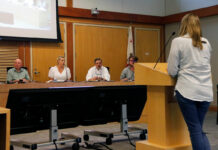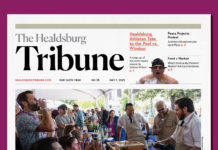For some reason, we have taxes on our minds this week. Tax Day (April 15) just happened and we’re busily wadding up all the extra forms with pencil mistakes and late night calculations. We just hit the “Send” button on our TurboTax or stubbornly filed our income taxes the old fashioned way with a licked stamp and envelope.
We can’t help but conjure up images of the original Boston Tea Party, when American colonialists protested “taxation without representation” against the British Crown. We have been bitching ever since about paying our taxes. We complain about all the complicated income tax forms. We cuss at the TV whenever taxes are mentioned. We say we’re “mad as hell and we’re not going to take it anymore.” And, what good does it do us?
Talk about “taxation without representation.” What would you call our present tax system? How many of us feel represented when Congress wheels and deals over our taxes? How much say do any of us have about our income, property or sales taxes we pay every day and once a year on April 15?
The only local taxes we feel closely in touch with are our school, fire and hospital taxes. These are the smaller taxes and the ones we actually like the most (or disfavor the least).
Taxation without representation. That is what we get when we have a House of Representatives full of men and women more interested in getting re-elected or keeping their party in control than being public servants or statesmen.
In California, there are almost no local taxes. Income taxes and property taxes all go to Sacramento. Even the taxes that are supposed to support our local schools, highways and court systems are collected by the state government before a small portion is filtered back to our local county, cities and schools. When Prop. 13 was passed in 1978, California voters gave up their local control of these basic taxes. All sales tax, even on the most local purchase, is sent to Sacramento, too.
When not enough tax money is collected or returned from Sacramento or Washington, D.C. these days, what do local taxpayers do? Do we raise hell and dump tea in the harbor? No, we whine a little and then vote yes for a new special tax on our city utility bills, a sales tax hike or a school bond.
One thing we agree with Congress about is that too much tax money gets wasted. (We think there is lots of waste in Sacramento, too, by the way.) The country’s billionaires and biggest corporations benefit from huge tax loopholes while people living below the federal poverty line see their benefits get cut — again.
The Tea Act of 1773, like the Stamp Act before it and the Whiskey Tax after it, were all taxes levied to pay for the cost of war or military support. Too many taxes have gone to support the wars of our country, right up to the $3 trillion we’re still paying for the invasion of Iraq in 2003. (You do remember voting for this tax, don’t you?)
More than half (55 percent) of the federal budget goes to the Pentagon for military operations, weapons and war. The next biggest expenses are Medicare, Social Security and interest on the federal deficit. Science, education, energy, environment and housing programs all receive pennies by comparison.
Coming soon is April 24, another big tax day worth celebrating. That will be Tax Freedom Day, the day all taxpayers will have worked enough days and made enough payroll deductions to pay next year’s tax bill. That means we all work one third of the year for the government and two-thirds for us and our families.
Taxation without representation? It’s all on us.
— Rollie Atkinson








